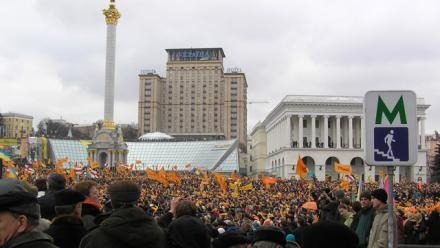New ANU project to research post-election disputes and their causes

An Australian National University political scientist has won an esteemed ARC grant for an international project investigating why some political parties in Eastern Europe, Africa and Asia reject election results.
Dr Svitlana Chernykh, an ANU School of Politics and International Relations lecturer, seeks to answer why political parties refuse to comply with electoral results and what determines the strategies that they use to contest them. The project will also evaluate the impression post-election disputes and their resolution have on the future of political parties and democratic governance.
She says as some of Australia’s foreign aid goes to electoral assistance in Asia, her results may be able to help donor countries target their money more effectively.
“Answering these questions will not only help target Australian (and other donor) aid more effectively but will also reduce it by enabling us to resolve post-election disputes more efficiently and even prevent them in the future.”
“Elections lie at the core of democratic governance. But if political parties reject their outcomes, then the very idea of election-based democracy is undermined,” says Dr Chernykh, who studied in the United States and worked as a post-doctoral research fellow at St Antony’s College at the University of Oxford.
Dr Chernykh says scholars have thus far primarily focussed on why post-election protests succeed in overturning election results and tended to ignore reasons why parties reject results in the first place.
The scope of Dr Chernykh’s three-year project is ambitious: she will examine multi-party elections in the countries of the former Soviet Union and Eastern Europe, sub-Saharan Africa, and Southeast Asia.
Her sources will include primary and secondary news sources, election observers’ reports, numerous other documentary and archival materials, as well as interviews with election monitors and party officials.
“I do love data collection. Although it requires a significant amount of time, you learn so much during the process,” Dr Chernykh says.
After her project concludes in 2019, Dr Chernykh plans to make her findings public.
“I may not be able to answer all the questions about elections and post-electoral compliance, but by collecting the data and making it available to policy-makers and academics, this will enable them to answer some questions that I perhaps haven’t addressed.”








